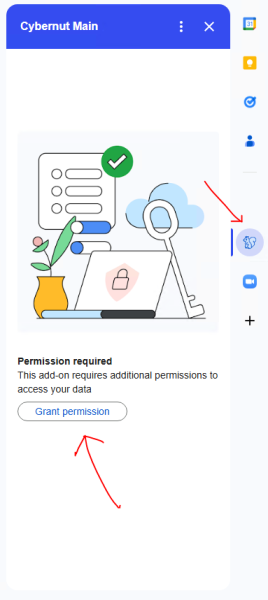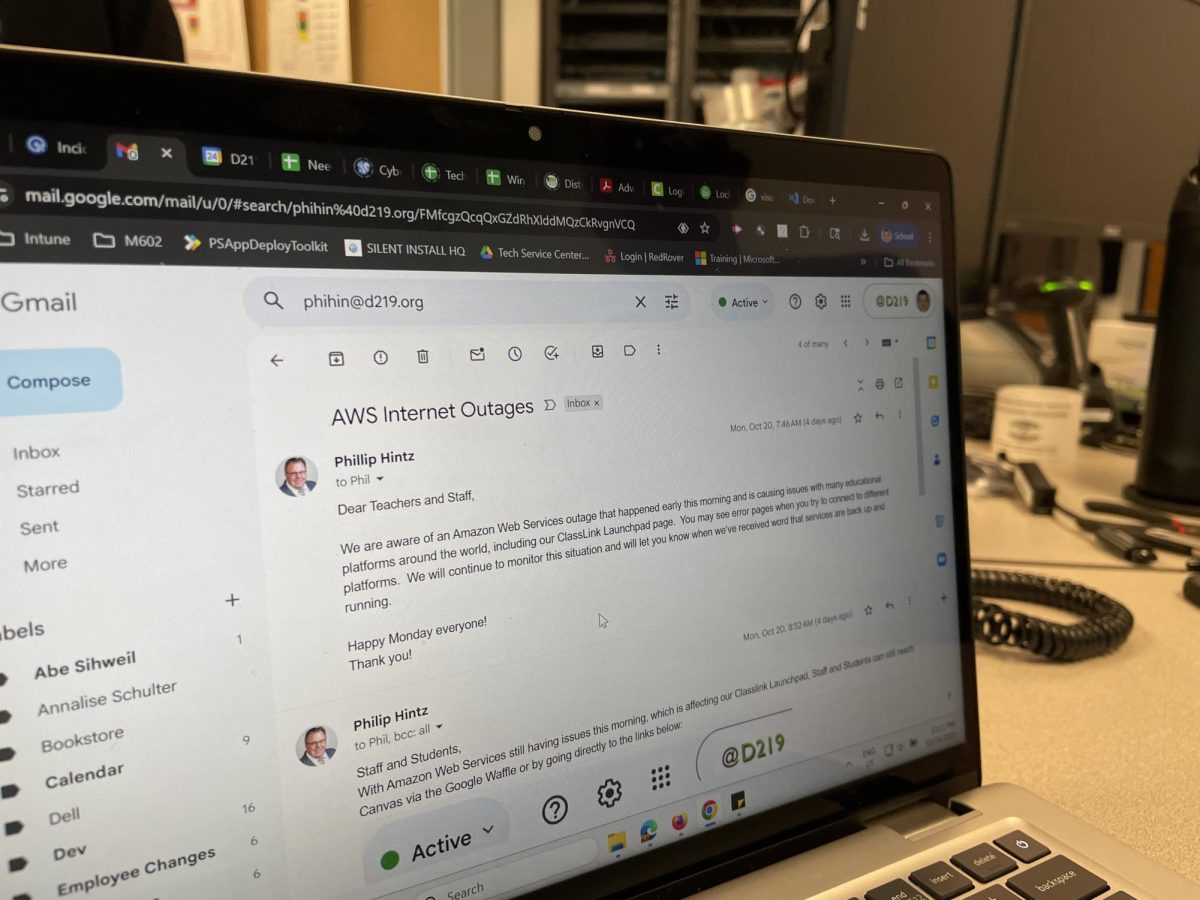In order to increase cybersecurity awareness, District 219 has partnered with CyberNut, a security awareness training platform. Throughout the school year, CyberNut will send simulated phishing emails—malicious emails meant to trick people into divulging information—that can be reported by clicking a CyberNut tool resembling a blue squirrel. Each report accumulates “acorn points,” and people with the most points are ranked on a district-wide leaderboard.

Chief Technology Officer Philip Hintz discusses the importance of this cybersecurity initiative.
“With the rise of Artificial Intelligence (AI), scammers are improving, so their emails are looking more and more legitimate,” Hintz said. “They may look like they’re coming from somebody you know and from a trusted source. CyberNut uses AI to create some fake emails to test people with, and as you get better and better at detecting it, not only do you move up the leaderboard, but the emails become progressively harder to detect.”
Hintz describes the process of reporting a phishing email.
“If you get something you think might be a phishing email and you click on the squirrel, it’ll give a little lesson on what made you think it was fraudulent,” Hintz said. “It’ll guide you through the ways to identify and detect whether it is a scamming email.”
Former cybersecurity teacher Matthew Fahrenbacher explains the importance of CyberNut.
“If you’re not watching what you’re clicking on in emails and checking who the sender is, it’s very likely that you’re going to fall for a phishing scam,” Fahrenbacher said. “There are lots of people who have been scammed out of tens and hundreds of thousands of dollars because of these scams. CyberNut helps because it tests people on common clues in emails that might indicate that they’re a phishing scam.”
Currently, these simulated phishing emails are being sent out to staff only. English teacher Ronald Feiereisel describes how the CyberNut initiative has helped him be more safe online.
“I thought that it was helpful because it gave you a little more information and helped you look out for actual spam and phishing attempts,” Feiereisel said. “It also became like a friendly competition between teachers where we would track the leaderboard and see if one of us passed another.”
CyberNut emails are scheduled to roll out to students by the second semester for the first time.
“We feel that our students need to be aware of the different techniques that hackers use in order to try to steal their information so it is important for our students to receive as well as our staff microtraining on how to identify emails that are fraudulent,” Hintz said.














